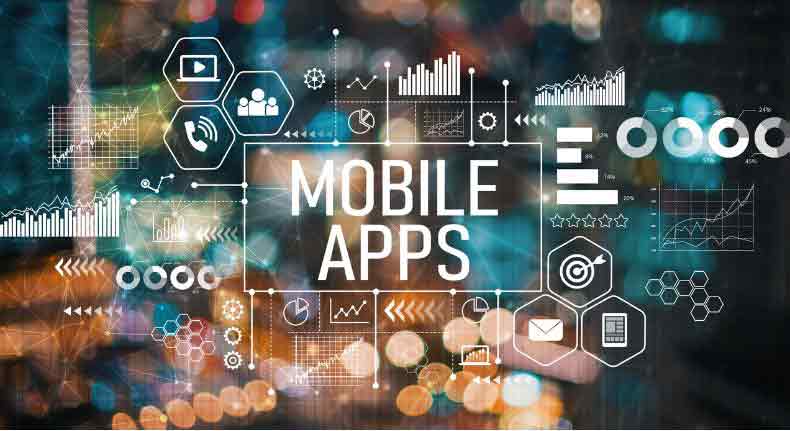In today’s digital era, mobile app development is a critical aspect of business growth. With millions of apps available across various platforms, creating a successful mobile app involves meticulous planning, execution, and marketing. This blog will delve into the comprehensive steps involved in mobile app development, the technologies used, marketing strategies, and why partnering with Zlendo can be a game-changer for your business.
Why a Mobile App is a Necessity Today
In today’s digital landscape, a mobile app is not just an add-on but a fundamental necessity for businesses of all sizes and across all industries. Here’s why:
Increased Customer Engagement
- Accessibility: Mobile apps provide a direct channel to engage with customers. With push notifications, businesses can send real-time updates, offers, and reminders, keeping users engaged.
- Personalization: Apps can collect user data to offer personalized experiences, improving customer satisfaction and loyalty.
Enhanced Customer Experience
- Convenience: Apps allow users to access products and services on the go, providing convenience and fostering a better user experience.
- Speed: Apps are often faster than mobile websites, reducing loading times and improving the overall user experience.
Brand Visibility and Recognition
- Constant Presence: With an app icon on their device, your brand remains visible to customers, reinforcing brand recognition and recall.
- Unique Features: Apps can utilize device features like GPS, camera, and microphone to offer unique functionalities that enhance user interaction.
Direct Marketing Channel
- Information Hub: Apps can provide a wealth of information about products, services, and special promotions, directly reaching your audience without intermediaries.
- Customer Feedback: Integrated feedback systems in apps allow businesses to quickly gather and respond to customer feedback.
Increased Sales and Revenue
- E-commerce: Apps make it easier for customers to browse and purchase products, leading to higher conversion rates.
- In-App Purchases: Apps can offer additional features or content for purchase, generating additional revenue streams.
Competitive Advantage
- Stay Ahead: Businesses with mobile apps can stay ahead of competitors who lack such digital tools, especially in industries where customer experience is paramount.
- Innovation: Apps can demonstrate a company’s commitment to innovation and technology, appealing to tech-savvy customers.
Industries that benefit from having mobile apps

Retail and E-commerce
- Enhanced Shopping Experience: Apps offer personalized shopping experiences, easy navigation, and faster checkout processes.
- Loyalty Programs: Implementing loyalty programs through apps encourages repeat purchases and customer retention.
Healthcare
- Telemedicine: Apps facilitate virtual consultations, remote monitoring, and easy access to health records.
- Patient Engagement: Apps provide reminders for medication, appointments, and health tips, improving patient adherence and engagement.
Finance and Banking
- Convenience: Mobile banking apps allow users to manage their finances, transfer money, and pay bills on the go.
- Security: Enhanced security features such as biometric authentication ensure safe transactions.
Education
- E-learning: Educational apps provide access to online courses, interactive learning materials, and virtual classrooms.
- Engagement: Gamification and personalized learning paths in apps enhance student engagement and outcomes.
Hospitality and Travel
- Booking and Reservations: Apps simplify the booking process for hotels, flights, and other travel services.
- Personalized Experiences: Apps offer personalized travel recommendations, itineraries, and real-time updates.
Food and Beverage
- Online Ordering: Apps enable customers to order food for delivery or pickup easily.
- Loyalty and Rewards: Apps can integrate loyalty programs and special offers, increasing customer retention.
Real Estate
- Property Search: Apps allow users to search for properties, view photos, and get detailed information.
- Virtual Tours: Apps can offer virtual tours and augmented reality experiences to potential buyers.
Media and Entertainment
- Streaming Services: Apps provide on-demand access to movies, music, and other content.
- Interactive Features: Apps can include features like live streaming, social sharing, and interactive content.
Logistics and Transportation
- Real-Time Tracking: Apps provide real-time tracking of shipments and deliveries.
- Efficiency: Apps streamline operations, reducing delays and improving service quality.
Fitness and Wellness
- Health Tracking: Apps allow users to track their fitness goals, monitor workouts, and maintain wellness routines.
- Personal Coaching: Apps can offer personalized fitness plans and virtual coaching sessions.
A mobile app is a powerful tool that can significantly enhance a business’s operations, customer engagement, and overall growth. Whether you’re in retail, healthcare, finance, or any other industry, the benefits of having a mobile app are clear. By leveraging the capabilities of a mobile app, businesses can provide better services, improve customer satisfaction, and stay ahead in a competitive market.
Steps Involved in Mobile App Development

Ideation and Conceptualization
- Brainstorming: Gather ideas and insights about the app’s purpose, target audience, and key features.
- Market Research: Analyze competitors, identify gaps, and validate your app concept.
Planning
- Define Objectives: Clearly outline the app’s goals and objectives.
- Create a Roadmap: Develop a project timeline, including milestones and deliverables.
- Budgeting: Estimate the costs associated with development, design, testing, and marketing.
Technical Feasibility Assessment
- Platform Selection: Decide whether to develop for iOS, Android, or both.
- Technology Stack: Choose the appropriate technologies, frameworks, and tools (e.g., Swift, Kotlin, React Native, Flutter).
Design
- Wireframing: Create a visual guide to outline the app’s structure and flow.
- UI/UX Design: Design the user interface and user experience to ensure the app is intuitive and engaging.
Development
- Backend Development: Set up servers, databases, and APIs.
- Frontend Development: Build the client-side of the app.
- Integration: Ensure seamless integration between the frontend and backend.
Testing
- Quality Assurance: Conduct thorough testing to identify and fix bugs.
- Usability Testing: Ensure the app provides a good user experience.
- Performance Testing: Test the app’s performance under various conditions.
Launch
- App Store Submission: Prepare for the launch by following the guidelines of the App Store and Google Play.
- Marketing Materials: Create promotional content, such as videos, screenshots, and descriptions.
Post-Launch
- Monitoring: Track app performance and user feedback.
- Updates: Regularly update the app to fix issues and add new features.
Technologies Involved in Mobile App Development
- Programming Languages: Swift, Kotlin, Java, JavaScript, Dart.
- Frameworks: React Native, Flutter, Xamarin.
- Backend Services: Node.js, Ruby on Rails, Django.
- Databases: Firebase, SQLite, MongoDB.
- APIs and SDKs: Various APIs for integrations (e.g., payment gateways, social media).
Marketing Your Mobile App

Pre-Launch Marketing
- Teaser Campaigns: Build anticipation through teasers and pre-registration.
- Social Media: Utilize platforms like Facebook, Twitter, and Instagram for promotion.
Launch Marketing
- Press Releases: Send out press releases to relevant media outlets.
- Influencer Marketing: Collaborate with influencers to reach a broader audience.
Post-Launch Marketing
- App Store Optimization (ASO): Optimize app title, description, and keywords.
- User Engagement: Use push notifications, in-app messages, and email marketing.
- Advertising: Invest in paid ads on Google, Facebook, and other platforms. Increasing App Downloads and Usage
- Referral Programs: Encourage users to refer your app to others.
- Incentives: Offer rewards for downloads, sign-ups, and in-app purchases.
- User Reviews: Prompt users to leave positive reviews and ratings. Choosing the Right Partners
Factors to Consider Before Selecting a Vendor for Building a Mobile App
How to choose the right partner for developing your mobile app

Choosing the right vendor for mobile app development is crucial for the success of your project. Here are the key factors to consider:
Experience and Expertise
- Industry Experience: Look for vendors with a proven track record in your specific industry. This ensures they understand the unique challenges and requirements of your business.
- Technical Expertise: Ensure the vendor has expertise in the technologies you plan to use (e.g., iOS, Android, React Native, Flutter). Check their proficiency in the programming languages and frameworks necessary for your project.
Portfolio and Case Studies
- Previous Work: Review the vendor’s portfolio to see the types of apps they have developed. Look for apps similar to what you have in mind.
- Case Studies: Detailed case studies provide insights into how the vendor handled past projects, the challenges faced, and the solutions implemented.
Client References and Reviews
- Client Testimonials: Ask for references and talk to past clients about their experiences. Inquire about the quality of work, reliability, and post-launch support.
- Online Reviews: Check reviews on platforms like Clutch, GoodFirms, and Google to get an unbiased view of the vendor’s reputation.
Development Process and Methodologies
- Development Approach: Understand the vendor’s development methodology (Agile, Scrum, Waterfall). Agile methodologies are often preferred for their flexibility and iterative approach.
- Project Management: Evaluate how the vendor manages projects, including their communication protocols, use of project management tools, and frequency of updates.
Technical Support and Maintenance
- Post-Launch Support: Ensure the vendor offers ongoing support and maintenance after the app is launched. This includes bug fixing, updates, and enhancements.
- Service Level Agreements (SLAs): Clear SLAs define the level of support and response times you can expect.
Cost and Budget
- Transparent Pricing: Request a detailed breakdown of costs to understand what you are paying for. Be wary of vendors with significantly low estimates, as they may cut corners or have hidden costs.
- Budget Alignment: Ensure the vendor’s pricing fits within your budget. Discuss payment terms and ensure there are no hidden fees.
Communication and Collaboration
- Communication Channels: Effective communication is key to a successful project. Ensure the vendor uses reliable communication channels (e.g., Slack, Zoom, email) and is responsive.
- Cultural Fit: Assess the vendor’s working culture and values to ensure they align with your own. This fosters better collaboration and understanding.
Customization and Flexibility
- Tailored Solutions: Ensure the vendor can provide customized solutions tailored to your specific business needs rather than off-the-shelf products.
- Scalability: The vendor should be capable of scaling the app as your business grows, adding new features and handling increased user loads.
Security and Compliance
- Data Security: Verify that the vendor follows best practices for data security and privacy. This includes secure coding practices, data encryption, and regular security audits.
- Regulatory Compliance: Ensure the vendor is knowledgeable about and compliant with relevant industry regulations (e.g., GDPR, HIPAA).
Innovation and Technology Trends
- Up-to-Date: Choose a vendor that stays current with the latest technology trends and innovations in mobile app development.
- Innovative Solutions: The vendor should be able to suggest innovative features and improvements to enhance your app’s functionality and user experience.
Prototype and MVP Development
- Prototyping: Ensure the vendor offers prototyping services to visualize the app before full-scale development begins.
- Minimum Viable Product (MVP): Discuss the possibility of developing an MVP to test the app’s core functionalities and gather user feedback before the full launch.
Legal and Contractual Considerations
- Intellectual Property (IP) Rights: Ensure the contract clearly states that you own the IP rights to the app and any related assets.
- Confidentiality: Non-disclosure agreements (NDAs) protect your sensitive information and ensure the vendor maintains confidentiality.
Team Composition
- Skill Set: Evaluate the team’s composition, including developers, designers, QA testers, and project managers. Ensure they have the right mix of skills for your project.
- Availability: Confirm the team’s availability and capacity to take on your project within your desired timeline. Conclusion
Selecting the right vendor for mobile app development is a critical decision that can impact the success of your project. By considering these factors, you can ensure you choose a vendor that not only meets your technical requirements but also aligns with your business goals and values. A thorough evaluation process helps build a strong partnership, leading to the successful delivery of a high-quality mobile app.
For a reliable and experienced partner, consider Zlendo. With their extensive expertise, comprehensive support, and commitment to innovation, Zlendo is well-equipped to help you bring your mobile app vision to life.

Why Zlendo is the Best Candidate
- Experience: Zlendo has a proven track record of successful app developments.
- Expertise: Skilled in the latest technologies and trends in mobile app development.
- Support: Provides comprehensive support throughout the development process and beyond.
- Customization: Offers tailored solutions to meet your specific business needs.
Conclusion
Mobile app development is a multifaceted process that requires careful planning, the right technology, and effective marketing strategies. By partnering with an experienced and reliable company, you can ensure a seamless development process and a successful app launch.

Excellent article! It’s well-organized, informative, and written in a way that’s easy to follow. I found it very helpful. https://jivoice.com/social-media-stars-top-10-influencers-shaping-trends/
Your content always manages to captivate and educate me. Keep up the fantastic work!
This post is a great resource for anyone looking to learn more about the topic. It’s well-written, informative, and full of practical advice. Thanks for sharing! : nftbeyond.com